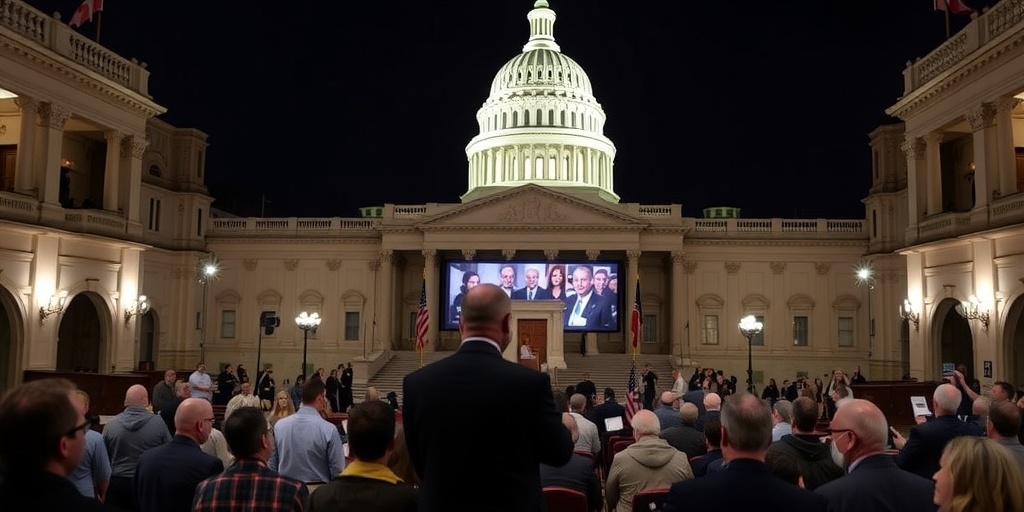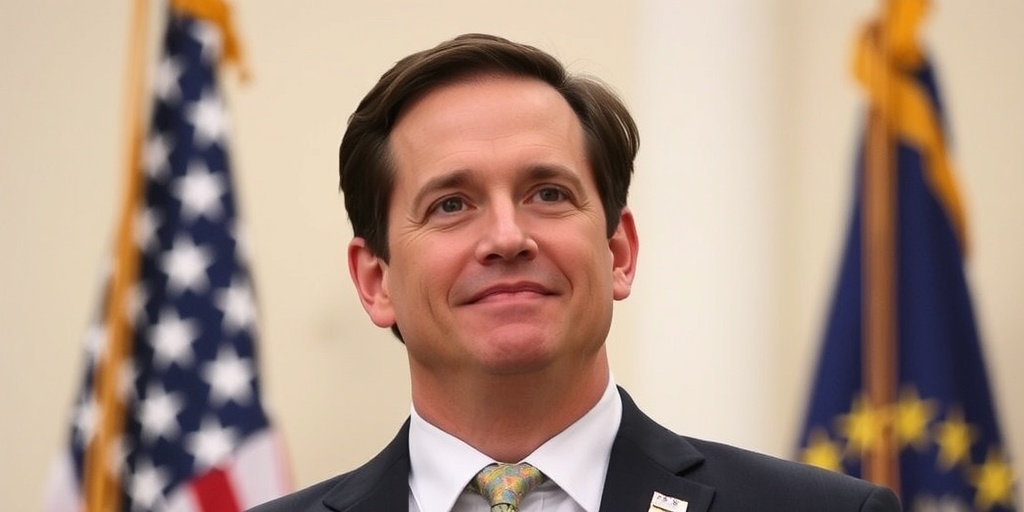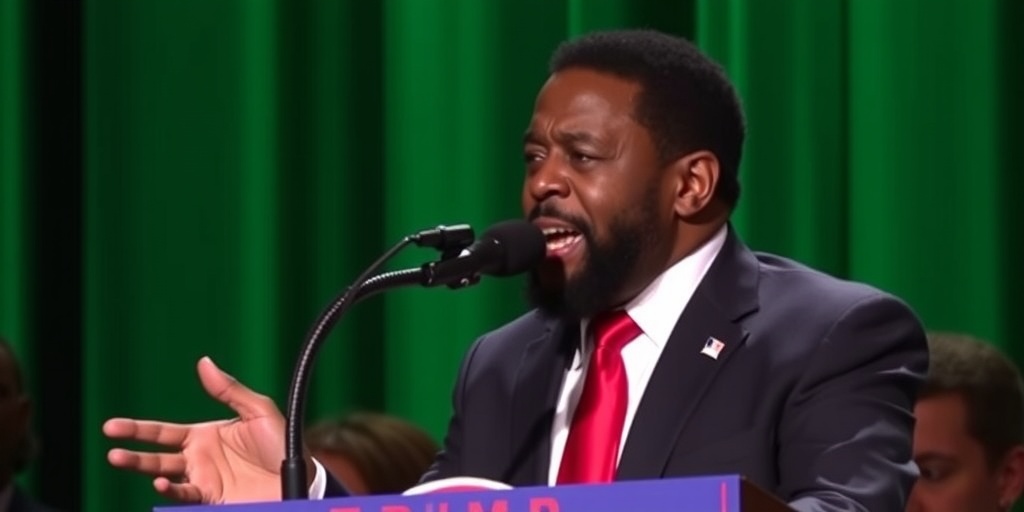Now Reading: Trump’s Use of U.S. Power Raises Economic Uncertainty
-
01
Trump’s Use of U.S. Power Raises Economic Uncertainty
Trump’s Use of U.S. Power Raises Economic Uncertainty

Trump’s Trade War: Economic Strategy or Political Signal?
In an aggressive move that could reshape international economic relationships, President Trump has seized upon the U.S. economy as a strategic weapon, threatening tariffs that could impact over a trillion dollars in trade. This approach is part of what experts and critics are calling an economic war against multiple nations, specifically targeting the United States’ closest trading partners—Canada, Mexico, and China.
The rationale behind Trump’s tariff threats is multifaceted. He is leveraging economic pressure to compel these countries to address issues that he deems critical, including halting the flow of migrants at the U.S. border and curtailing shipments of dangerous drugs. In his view, trade negotiations must result in more favorable conditions for the United States, particularly concerning trade deficits.
A noteworthy development occurred recently when President Trump agreed to delay the implementation of a 25 percent tariff on Mexico, originally set to take effect. This reprieve followed promises from Mexican President Claudia Sheinbaum to bolster the U.S.-Mexico border with an additional 10,000 members of the National Guard. However, Trump has been unambiguous in his willingness to wield tariffs as a means of coercion, stating, “Tariffs are very powerful, both economically and in getting everything else you want.” He painted a picture of economic dominance, asserting that this move would ultimately make the United States “very rich again.”
While the President’s assertion about the United States’ economic resilience holds merit—given that Canada and Mexico depend heavily on U.S. trade—it remains a complex battle. Economists have voiced concerns that trade wars do not come without a cost to the U.S. economy. Import tariffs are predicted to lead to rising prices for consumers, stalled investments, and a slowdown in economic growth, ultimately hurting American exports. Many farmers and businesses are already expressing their apprehensions about the ramifications of such tariffs.
Economist Emily Blanchard from Dartmouth’s Tuck School of Business suggested that Trump’s aggressive tariff strategy could unravel the trust that has historically underpinned U.S. economic strength. She warned, “Trade policy is an economic weapon that becomes less powerful every time it is used.” The uncertainty surrounding trade policy could deter businesses from expanding operations or hiring new workers, creating a chilling effect on economic development.
Trump has acknowledged the possibility of domestic "pain" resulting from trade wars but defends the approach by suggesting that other countries would suffer more. His messages frequently emphasize that gaining economic advantage justifies any resulting hardships. A White House news release articulated that access to the American market is merely a “privilege” for foreign governments, underscoring the perceived leverage the U.S. holds due to its economic position.
Former trade negotiator Wendy Cutler noted that while trade wars may not be as harmful to the U.S. as they will be to its partners, American consumers and businesses will inevitably bear some of the consequences, especially amid retaliatory measures by affected countries. Indeed, Canada’s planned retaliatory tariffs on American products—including honey, tomatoes, and whiskey—highlight the potential for an escalating trade war.
Research from the Peterson Institute for International Economics has quantified these potential impacts, predicting a significant contraction in the economies of Canada and Mexico if Trump enacts proposed tariffs. Their estimates suggest a full percentage point reduction in GDP for these countries by 2027, while the U.S. economy would experience only a fraction of that decline. Such disturbances in trade relationships, particularly after decades of integrated supply chains established under previous agreements, threaten long-standing economic stability.
Beyond immediate economic impacts, experts also caution about the long-term ramifications of Trump’s trade policies. The unpredictability of tariff imposition and the seemingly arbitrary criteria for their removal could erode global confidence in the United States’ commitment to established trade norms. Edward Alden, a trade expert at the Council on Foreign Relations, remarked that Trump’s haphazard approach to tariffs signals a departure from the predictability the international community had come to expect from U.S. trade policies.
As tensions escalate, discussions about the underlying motivations for Trump’s tariff threats abound. Some analysts suggest that the President’s rhetoric serves more as a political signal targeting domestic audiences rather than addressing substantive trade issues or drug trafficking challenges. Observers note that tariffs have become a method for elected officials to demonstrate their commitment to confronting pressing issues.
Heather Hurlburt, a former trade official, emphasized that tariffs function as a significant signaling tool in politics. Economic research has indicated that previous tariff implementations under Trump did not achieve their intended goals of boosting manufacturing jobs but were successful in engaging and rallying Republican voters.
In summary, while President Trump’s strategy to use the U.S. economy as leverage marks a bold and confrontational approach, the long-term implications could destabilize not just U.S. economic interests but also the broader global trading system. The unfolding trade war with Canada, Mexico, and China raises critical questions about the future trajectory of international economic relations and the health of the global economy overall.
Stay Informed With the Latest & Most Important News
Previous Post
Next Post
-
 01New technology breakthrough has everyone talking right now
01New technology breakthrough has everyone talking right now -
 02Unbelievable life hack everyone needs to try today
02Unbelievable life hack everyone needs to try today -
 03Fascinating discovery found buried deep beneath the ocean
03Fascinating discovery found buried deep beneath the ocean -
 04Man invents genius device that solves everyday problems
04Man invents genius device that solves everyday problems -
 05Shocking discovery that changes what we know forever
05Shocking discovery that changes what we know forever -
 06Internet goes wild over celebrity’s unexpected fashion choice
06Internet goes wild over celebrity’s unexpected fashion choice -
 07Rare animal sighting stuns scientists and wildlife lovers
07Rare animal sighting stuns scientists and wildlife lovers




















